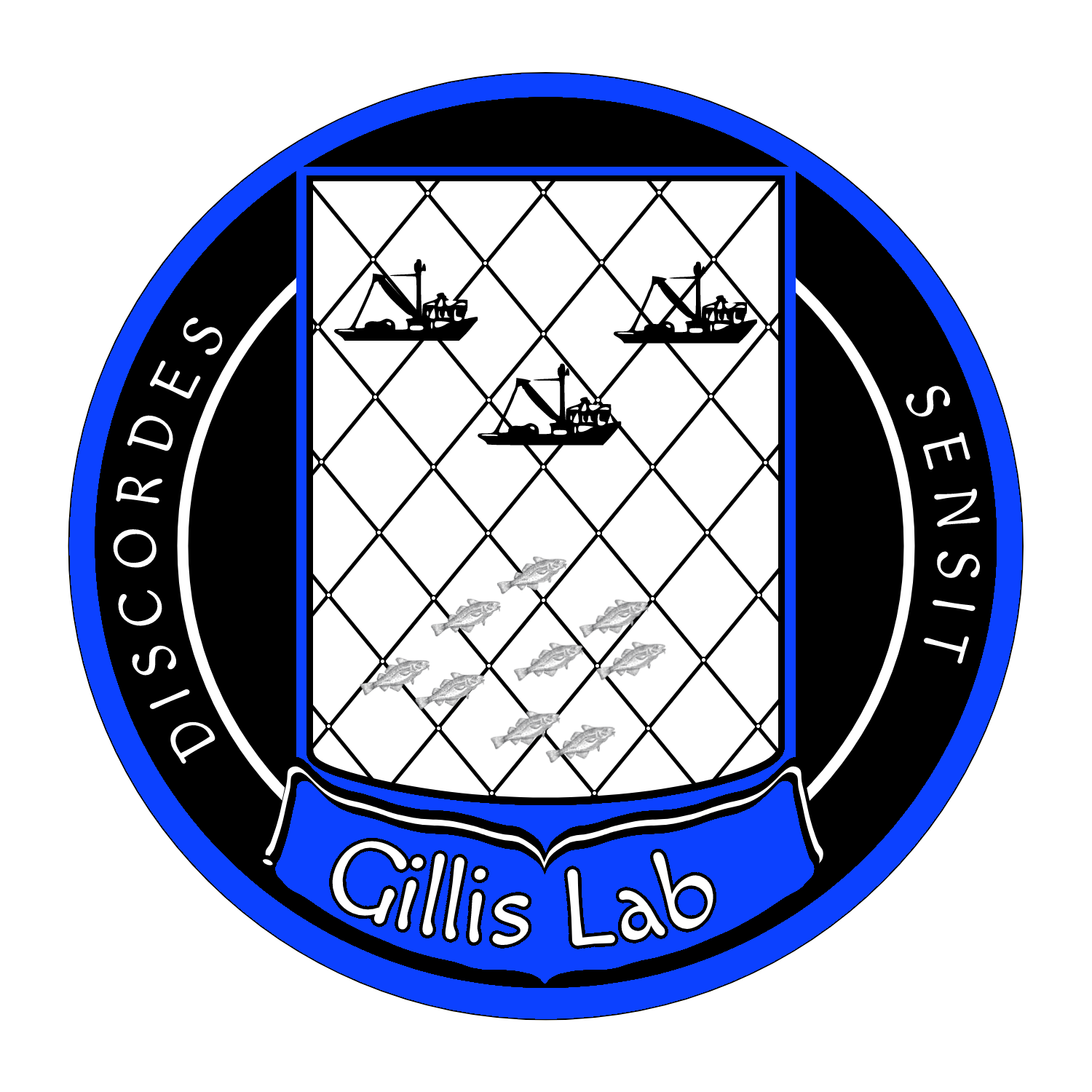Gillis Lab
Thank you for your interest in our lab! We focus on the analysis of data gathered during the prosecution of fisheries to make inferences regarding fleet dynamics, fish population dynamics, and the biology of fish.
Data from commercial fisheries will always have the potential to exceed the quantity of affordable information obtained from research surveys. However, it is critical that the circumstances underlying the collection of these data are understood to avoid confusion between natural and anthropogenic phenomena. To achieve this, much of our research focuses on the quantification of behavioral patterns of both fishers and fish contained within catch and effort data that may produce a biased representation of the fishery.
The theoretical basis of our fleet dynamic work can be found in behavioral ecology, micro-economics, and operations research. Each of these areas share common mathematical foundations based upon the identification of expected decisions. By testing specific hypotheses about the relationship between fishing success and fleet dynamics (such as vessel movements, species selection, and information exchange) models of decision processes can be developed to reflect fisher’s behavior. These can then be used to predict the response of fishing fleets to potential regulatory or biological changes in the fishery or to reinterpret historical catch and effort data.
The methods we use to examine these hypotheses span statistical, mathematical, and simulation based models. Current projects involve collaboration with provincial (Manitoba), federal (Fisheries and Oceans, Canada) and foreign (IMARES - the Dutch Institute for Marine Resources and Ecosystem Studies) agencies examining the fisheries of Lake Winnipeg, the Arctic, and the Atlantic.
Please note: all images on the website are our own except where otherwise indicated.
